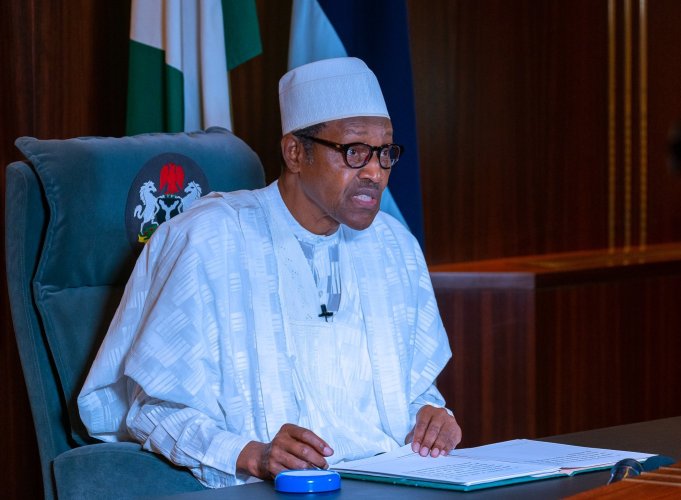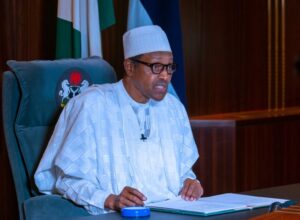Amid concerns over N33tr debt burden, President Muhammadu Buhari has requested the Senate to consider and approve an external borrowing plan amounting to about N2.5 trillion to fund projects captured under the 2018-2021 borrowing projections. If approved, the country’s documented national debts will balloon to over N35 trillion.
The Senate President, Ahmad Lawan, read the letter dated August 24, 2021, during plenary in Abuja, yesterday.
Buhari, in the letter, explained that the projects listed in the 2018-2021 Federal Government Borrowing Plan were to be financed through sovereign loans from the World Bank, French Development Agency (AFD), Export-Import Bank of China, International Fund for Agricultural Development (IFAD), Credit Suisse Group and Standard Chartered/China Export and Credit (SINOSURE).
The amount is in the sum of $4.05 billion, €710 million and a grant component of $125 million. The money, the President explained, would be used to fund federal and state government projects across key sectors such as infrastructure, health, agriculture and food security, energy, education and human capital development, as well as the COVID-19 response initiative.
Despite mounting debt, the Federal Government is aggressively pursuing a longer-term debt programme that will push the maturity of currently-secured loans to between 10 and 30 years.
Refinancing short-term loans, according to official documents, has become a strategic part of the current national debt management approach.
The Debt Management Office (DMO), in the 2019 Annual Report and Statement of accounts released yesterday, admitted that short-term loan refinancing with longer-term aligns with the 2016 – 2019 Medium-Term Debt Management Strategy and that its achievement in that context is a major improvement on the debt management approach.
“The strategy of borrowing long, and restructuring of the domestic debt portfolio by refinancing matured treasury bills with longer tenor securities lengthened the Federal Government bond yield curve up to 30 years within the period and was critical to the successes recorded,” DMO said in the appraisal.
Top in the DMO agenda is keeping the average time-to-maturity (ATM) for the total public debt portfolio at a minimum of 10 years.
In principle, long-term loans are recommended for growing entities that aspire for stable planning and growth. But experts are worried that extending the maturing dates of Nigerian debts is tantamount to postponing the proverbial evil day.
This is as it came to light on Monday that the Federal Government committed a total of N11.679 trillion into debt servicing, while N8.31 trillion was expended on capital/development expenditure between 2015 and 2020.
A breakdown of the amount showed that in 2015 and 2016, N953.620 billion and N1.475 trillion, respectively, were spent on debt service, while N1.841 trillion and N2.203 trillion went into same line item in 2017 and 2018, respectively.
The figures were unveiled in the “Analysis of the 2022-2024 Medium Term Expenditure Framework and Fiscal Strategy Paper,” presented in Abuja by the Centre for Social Justice (CSJ).
The sums of N2.254 trillion and N2.951 trillion went into debt service in 2019 and 2020, respectively. The N11.679,845,205, 997 five-year debt service profile (2015-2020) also translated to a yearly average of N1.386 trillion.
At the presentation, the Lead Director of CSJ, Eze Onyekpere, whose organisation has been in the forefront of the campaign for fiscal discipline and transparency in public affairs, stated that Nigeria’s debt had also been increasing in double digits year-after-year since 2015, with the highest increase recorded between 2015 and 2016.
Citing DMO statistics, Onyekpere observed that public debt stock stood at N12,603 trillion in 2015, N17.360 trillion in 2016, and N21.725 trillion in 2017. In 2018, 2019 and 2020, public debt stood at N24.387 trillion, N27.401 trillion, and N32.915 trillion, respectively.
The highest increase occurred between 2015 and 2016. Between 2015 and 2020, Nigeria’s public debt increased by 161 per cent, indicating a yearly average increase of 37.74 per cent.






